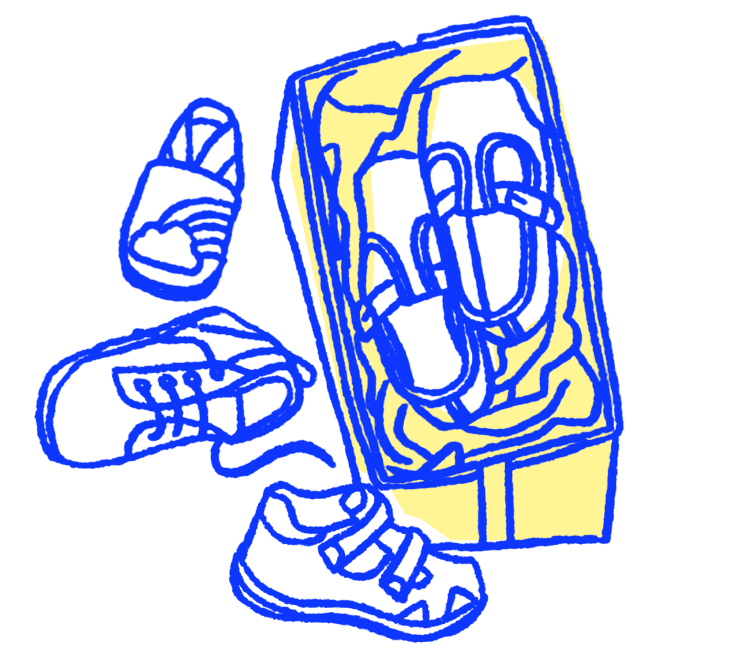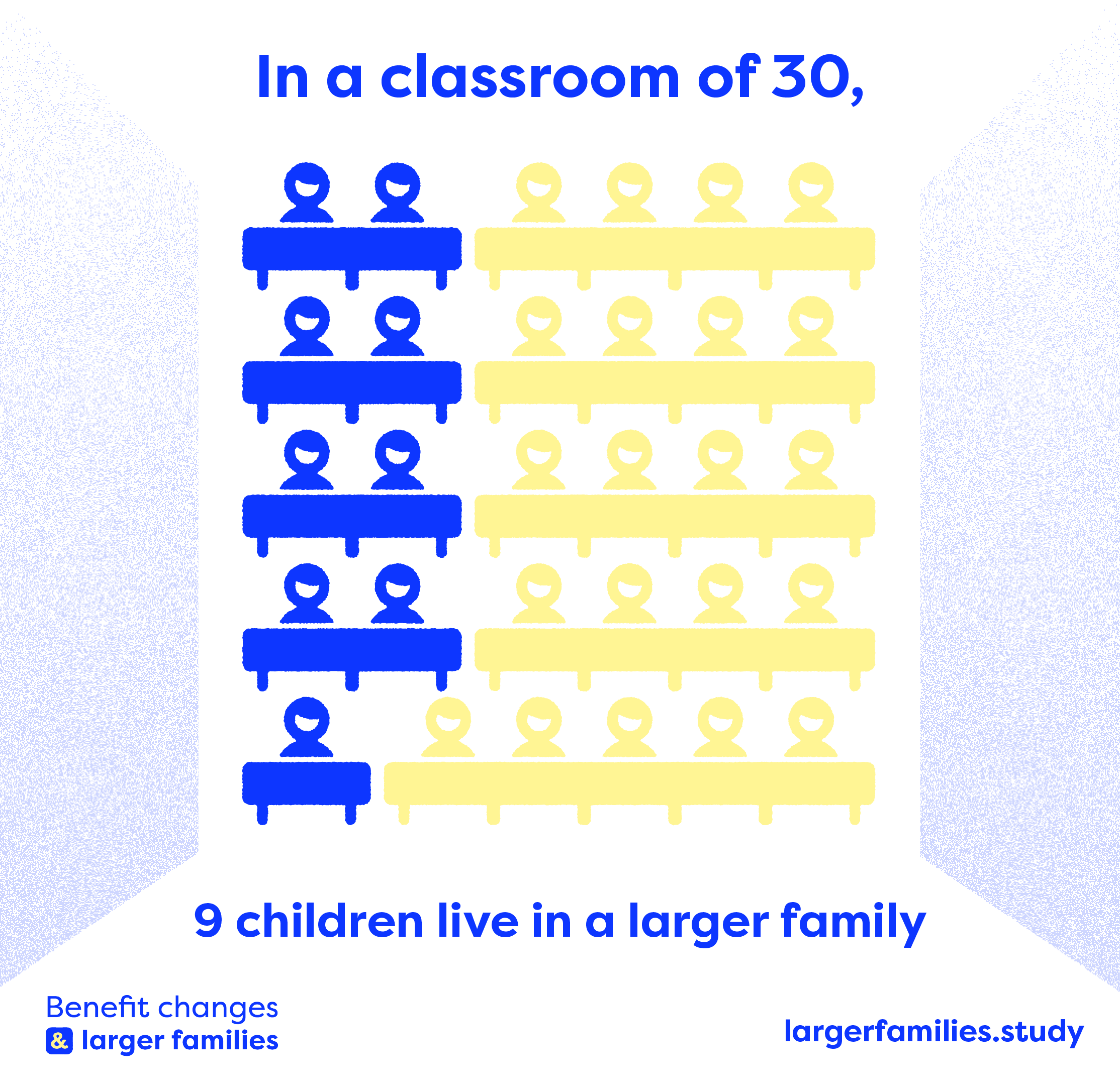Project update
We started our first round of interviews in April 2021 and finished it in November 2021. In January 2022, we went back to the parents we'd interviewed in 2021 and started interviewing them for a second time. This second round of interviews will finish in May. We'll do a third round of interviews later in 2022. We're really thankful to the families taking part in the project for sharing their experiences with us and for making the time to do this.

Needs and entitlements
Welfare reform and larger families
What we've learned so far
We've found some important things out about how these policies are impacting families:
Financial impacts of the policies
Impacts on mental health
Options for escaping the benefit cap/making up the shortfall from the two-child limit
Strategies for managing low benefit payments

How we've been sharing findings from the project
Presented the findings on the two-child limit to MPs and members of the House of Lords at a parliamentary roundtable
Hosted a series of webinars for politicians, charities and religious leaders where we shared the findings about both the two-child limit and the benefit cap
Written many blogs about the impact the policies are having
Shared the project's findings through newspaper articles and on the radio – for example, one of our researchers Aaron Reeves spoke to Radio 4 about the impact of the benefit cap.


About your area
Bradford
- Bradford is a city in Yorkshire with a population of 540,000
- By 2021, 4776 families had been affected by the benefit cap
- In 2021, 5180 families were affected by the two-child limit
- The child poverty rate (before housing costs) in Bradford in 2020 was 38%, much higher than the national average (19%)
- Bradford has below average house prices and lower average rents but because Bradford also has below average earnings and a higher unemployment rate, residents can struggle to afford rental costs or the average first time buyer mortgage.
Leeds
- Leeds is a city in Yorkshire and is the home to 799 000 people
- By 2021, 6112 families had been affected by the benefit cap
- In 2021, 4700 families were affected by the two-child limit
- The child poverty rate (before housing costs) in Leeds was 24% in 2020 (higher than the national average of 19%)
- While employment rates in Leeds are the same as the national average, the city has seen one of the biggest rises in child poverty in the Yorkshire region in recent years.
York
- York is a city in North Yorkshire with a population of 211 000
- By 2021, 611 families had been affected by the benefit cap
- In 2021, 460 families were affected by the two-child limit
- The child poverty rate (before housing costs) in York was 13% in 2020. While York’s child poverty rate is lower than the national average (19%), there are big differences in child poverty rates between the city’s wards.
- York has high rents and house prices (both are above the national average) and is ranked as the least affordable northern local authority.
Greenwich
- Greenwich is in southeast London and has a population of 288,000
- By 2021, 3722 families had been affected by the benefit cap
- In 2021, 1730 families were affected by the two-child limit
- The child poverty rate (before housing costs) in Greenwich in 2020 was 21%, which is a little above the national average (19%)
- House prices and rents are considerably higher than the national average.
- The employment rate is slightly higher than the national average and earnings are also higher.
- Although Greenwich is often labelled as an affluent borough, it has areas with considerable poverty.
Tower Hamlets
- Tower Hamlets is in east London and home to 325,000 people
- By 2021, 6981 families had been affected by the benefit cap
- In 2021, 2810 families were affected by the two-child limit
- The child poverty rate (before housing costs) in Tower Hamlets in 2020 was 28% which is higher than the national average (19%). The child poverty rate after housing costs is the highest in London.
- While the unemployment rate fell between 2014 and 2020, it still has a higher than average unemployment rate for the London boroughs.
- Housing costs are significantly higher than the national average.
Hackney
- Hackney is in east London and has a population of 281,000
- By 2021, 6862 families had been affected by the benefit cap
- In 2021, 2620 families were affected by the two-child limit
- The child poverty rate (before housing costs) in Hackney in 2020 was 23% which is higher than the national average (19%)
- The employment rate in Hackney is slightly higher than the national average while housing costs are significantly higher than the national average.
Did you know?

For timely project updates, and nothing else
Your details are safe with us. We will never share them with anyone else, and it’s easy to opt-out at any time. Check out our privacy policy here.